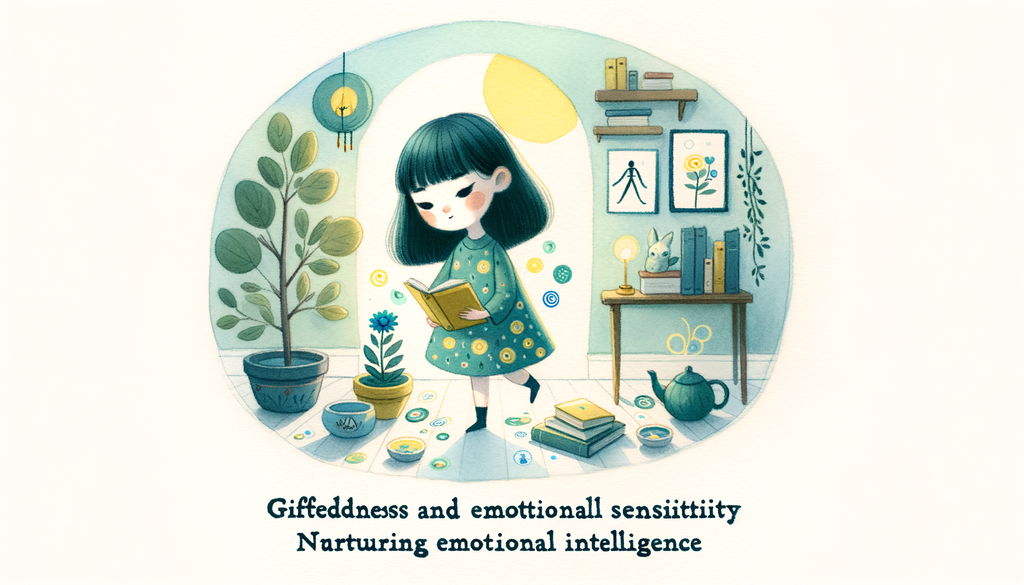Giftedness and Emotional Sensitivity: Nurturing Emotional Intelligence

Gifted children are often characterized by their heightened intellectual abilities. However, their advanced cognitive capacity frequently extends beyond academics, seeping into the realm of emotions with some experiencing amplified emotional sensitivity. It’s important, therefore, for parents and caregivers to understand and nurture their emotional intelligence.
Emotionally Gifted: A Double-Edged Sword
Many gifted children have an increased capacity to perceive, process, and empathize with emotions. While this trait can result in high emotional intelligence, contributing to successful interpersonal relationships and emotional well-being, it may also cause significant distress when not managed correctly. This intense emotional capacity can sometimes overwhelm gifted children, leading to anxiety, loneliness, perfectionism, existential dread, or even misdiagnoses of emotional disorders /Giftedness-and-Anxiety-Coping-Mechanisms-for-Parents-and-Children/.
How Parents Can Help
The key to nurturing the emotional intelligence of gifted children is threefold: Recognition, Validation, and Tolerance.
Recognition
The first step is recognizing the heightened emotional sensitivity in your gifted child. It’s crucial to monitor their emotional reactions to everyday situations, keeping an eye open for any patterns or triggers that might signal their emotional stress.
Validation
Once you are aware of their emotional sensitivities, actively validating their feelings is essential. It’s crucial to ensure they understand that their intense emotions are not something to be ashamed of. Instead, they are a part of their giftedness and something that can be harnessed for good /Supporting-Gifted-Teens-in-Managing-Stress/.
Tolerance
Teaching gifted children emotional tolerance and acceptance forms the third pillar. Equipping them with tools to manage their high emotional intensity will enable them to channel their emotions productively.
Concluding Thoughts
Emotional sensitivity, coupled with intellectual giftedness, offers an enriching but somewhat complex tapestry. Caregivers play a pivotal role in fostering effective emotional management and self-regulation in these children /Autism-and-Family-Life-Navigating-Daily-Routines/. The heightened emotional intensity and empathy, when properly guided and nurtured, can result in emotionally intelligent individuals capable of profound empathy, emotional resilience, and impactful contributions to society.
Please refer to our previous post on /Sibling-Synergy-Fostering-Positive-Relationships-Among-Diverse-Needs/ for strategies to sustain positive sibling relationships when one child is emotionally sensitive.